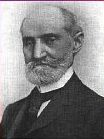Fever
Characteristic – Persons of a scrofulous diathesis, with dark hair and eyes, a low cachectic condition with profound debility and great emaciation (Abrotanum).
Great weakness and loss of breath on going up stairs (Calcarea), during the menses (Alumina, Carbo a., Cocculus indicus).
Empty eructations from morning till evening, as if every particle of food was turned into air (Kali carb.).
Ravenous hunger, eats freely and well, yet loses flesh all the time (Abrotanum, Nat.m., sanic., Tuberculinum).
Suffers from hunger, must eat every few hours, anxious and worried if he does not eat (Cina, Sulphur), feels ameliorated while eating or after eating, when stomach is full.
Itching: low down in the lungs, behind the sternum, causing cough. Extends through bronchi to nasal cavity (Cocculus indicusc., Conium, Phos). Hypertrophy and induration of the glands – thyroid, mammae, ovaries, testes, uterus, prostate or other glands – breasts may dwindle and become flabby.
Hard goitre, in dark – haired persons (light – haired, Bromium), feels ameliorated after eating.
Palpitation, worse from least exertion (from least motion, Digitalis- from least mental emotion, Calcareaars., Lithium carb.c.).
Sensation as if the heart were squeezed together, as if grasped with an iron hand (Cactus grandiflorus, Sulphur).
Leucorrhea: acrid, corrosive, staining and corroding the linen, most abundant at time of menses.
Cancerous degeneration of the cervix, cutting pains in abdomen and hemorrhage at every stool.
Constipation, with ineffectual urging ameliorated by drinking cold milk.
Croup: membranous, hoarse, dry cough, aggravated in warm wet weather, with wheezing and sawing respiration (Spongia), especially in overgrown psoric boys.
Child grasps the larynx (Cepa), face pale and cold, especially in fleshy children
Relations – Complementary to: Lycopodium.
Follows well: after Hepar, Mercurius, is followed by Kali bichromicum in croup.
“Acts best in goitre when given after full moon, or when the moon is waning.” – LIPPE.
Aggravation: Warmth, wrapping up the head, cannot bear hat on (rev. of Hepar, Psorinum).
Amelioration: Cold air, washing in cold water.
Type: Quartan, tertian. Sporadic La Grippe, tubercular.
Time: Any hour, often at night
Chill: Shaking chill, or unusual chilliness, even when in a warm room. Hands, nose, feet icy cold, cold feet the whole night. Chill frequently alternating with heat.
Heat: Quartan fever, with a constant diarrhea on the days free from fever (urticaria when fever has been suppressed, Elat.). Hot flushes of heat over the body (Ferrum, Sepia). Internal heat, with coldness of the surface. Burning heat of the hands (burning heat of palms of hands and soles of feet, with cold feet, Sul. ). Fever with dry skin, weak and rapid pulse, twitching of the muscles, and more coldness than heat of skin.
Sweat: With thirst. Debilitating, sour sweat all over in the morning hours, with great weakness of the limbs. Profuse, cold, viscid sweat at night. Palms of hands sweat continually. Cold feet sweat easily, so acrid that it corrodes the skin (Graphites).
Tongue: Thickly coated, brown in center, white at the edges. salivation, salty or sour.
Pulse: Large, hard, with orgasm of blood and throbbing in vessels, especially in larger arterial trunks, weak, rapid, thready, irregular, accelerated by every slight exertion.
Apyrexia: Countenance sallow, distressed look, ravenous hunger, must eat every few hours, left hypochondriac region hard and acutely sensitive to pressure. Emaciation, debility, restlessness. Gets anxious and worried if he does not eat, yet loses flesh all the time while eating freely.
Analysis. – The general characteristic symptoms are the only guides, symptoms of the paroxysm not marked. Fevers of Iodine often occur in tubercular persons, and may be result of suppressed intermittent by Quinine.

